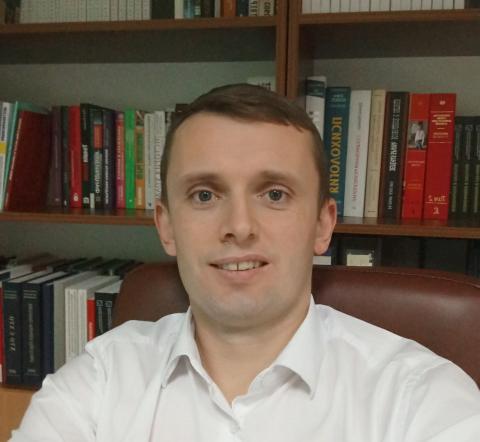Interview with the director of the Ukrainian Institute of Politics Ruslan Bortnik for the Croatian publication "Vesti" - https://www.jutarnji.hr/vijesti?cx_linkref=jl_menu_vijesti
How would you describe the situation in Ukraine? Are people really tired of war, as they say?
If we describe the situation as concisely as possible, Ukraine remains a fully functional state with relative political stability (though with uncertain prospects), immense military-political and social tension, and a chronic crisis on the front.
The Ukrainian society is indeed very tired of the war, the inability to predict its end, and the uncertainty of Ukraine’s overall political and economic future, especially regarding the feasibility and timing of joining the EU and NATO.
According to a survey by the Kyiv International Institute of Sociology conducted from September 20 to October 3, 2024, about 32% of Ukrainian citizens surveyed are willing to make territorial concessions to the Russian Federation to end the war. 58% of those surveyed oppose such concessions. Overall, from May 2022 to October 2024, the number of those willing to compromise has increased fourfold, while those opposed decreased from 87% to 58%, although they remain the majority. Some other surveys indicate an even more fragile balance, with nearly equal support for continued resistance versus negotiating peace.
Between February and October 2024, the number of Ukrainians willing to endure the war for as long as necessary has decreased by 10%. Although most of Ukrainians – 63% – still say they are ready to endure the war as long as it takes, this figure has dropped from 73% in February 2024. However, it’s important to consider that this public assessment is influenced by patriotism and love for the country, which may distort these figures compared to the true sentiment in the face of Ukraine’s restrictive information policy.
- Soon it will be 100 days since the start of the war. How different is today's Ukraine from the one before February 24, 2022?
Over this time, Ukraine has likely become a different country not only in political, economic, or military terms but also in territorial, demographic, ethnic, and religious aspects. This transformation is ongoing. Ukraine is gradually moving away from being a multicultural, agrarian-industrial country with intense political competition, evolving into a more monocultural and agrarian state led by a single leader.
Demographically, Ukraine has lost at least 10 million of its population. Russia has occupied territories with a population of at least 3-3.5 million people, and overall, between 6 to 9 million people reside in Russian-occupied territories, including Crimea. According to the UN, there are 6.5 million Ukrainian refugees worldwide, of whom about 6 million are in Europe. These numbers are likely incomplete, as a significant portion of refugees are in Russia and Belarus. Ethnic minorities, particularly those with native countries, have been the fastest shrinking demographic groups.
Religiously and linguistically, the country has changed as well, with an increase in Ukrainian speakers and the dominance of the Orthodox Church of Ukraine (Ecumenical Patriarchate) instead of the Ukrainian Orthodox Church (canonical connection with the Moscow Patriarchate).
Despite wage growth (especially among military and state security employees), poverty is rising rapidly. The number of Ukrainians living in poverty has increased by 1.8 million since 2020, comprising about 29% of the population – at least 8 million people. And this is a conservative estimate.
Ukraine's economic center has shifted, with successful companies and production facilities relocating to the western regions, making them the new economic heart of the country.
The Russian army has captured about 111,000 square kilometers of Ukrainian territory, which is roughly the size of two Croatian territories.

- A number of media announce the collapse of the Ukrainian defense in Donbass. Can it happen?
A collapse of the Ukrainian defense in Donbass is unlikely. This is due not only to the strength of the Ukrainian army but also to the high attrition of the Russian army and new war technologies, such as reconnaissance tools and drones, which prevent armies from making quick advances even after breaking through formal defense lines.
However, the negative military dynamics for the Ukrainian Armed Forces will likely continue. The Russian army will continue its slow advance, and the Ukrainian Armed Forces will retreat. It is likely that this year and the next, Russia will capture additional significant territories in Donetsk, Zaporizhzhia, and possibly Kharkiv, Sumy, and Dnipropetrovsk regions. Additionally, it will be challenging for the Ukrainian Armed Forces to retain occupied areas in Russia's Kursk region next year.
- According to you, why did Putin attack Ukraine?
There are several complex reasons: 1. The adverse shift for Russia in the geopolitical and military balance in the post-Soviet space due to increasing integration of neighboring countries into the EU and NATO. The Balkans, Moldova, Ukraine, Belarus, Georgia, Armenia, Kazakhstan, and other countries where Russian interests have faced crises over the last 20 years; 2. Russia's loss of effective soft power tools to influence these countries – economic presence, media, cultural presence, and political partners. In Ukraine, this manifested in the nationalization of Russian assets worth billions of dollars, sanctions against pro-Russian political forces, the closure of media accused of spreading Russian influence. For Russia, there were virtually no tools left to change the situation in Ukraine except militarily. Internationally, there was also the failure to implement the 2014-2015 Minsk Agreements, the cessation of negotiation mechanisms, and the blocking of the Nord Stream 2 pipeline; 3. The end of Vladimir Putin’s “political cycle” due to the depletion of traditional resources for Russia’s development, aging leadership, and uncertainty over a smooth transition of power in the future, and the unfinished task of establishing Russia as a global geopolitical and economic player; 4. The geopolitical ambitions of Russia’s leadership and society, which continue to see themselves as one of the world's leading states, especially with Ukraine and the U.S. (after Afghanistan) appearing weakened.
- What are the chances of negotiations?
The likelihood of negotiations between Ukraine and Russia, mediated by the U.S. (and other countries and international organizations), this year or next is high. However, the probability of success is much lower. Irreconcilable differences between the sides are remaining: Russia seeks a formal international agreement that would secure part of its territorial gains and interests in the region, which the West sees as a violation of the “rules-based order,” and Ukraine views as a historic loss, threatening internal political crises for its leadership and state. Significant factions within each side support continued hostilities for their own political and economic goals.
- In your opinion, what does the arrival of Trump mean for Ukraine and Russia?
This primarily means change and uncertainty. Donald Trump’s coming signals not only a potential shift in the U.S. strategy regarding the Russia-Ukraine war but also the need for Ukraine and the Russian Federation to adapt to this strategy.
Trump’s arrival undoubtedly moves the situation out of the geopolitical stalemate whose core idea was “let’s just keep fighting.” But this “balance of war continuation,” which Kamala Harris sought to maintain, could either lead to the end of the war or to its escalation, with individual NATO countries (but not the bloc as a whole) directly entering the conflict.
- Can Ukraine accept the loss of 20% of its territory and not joining NATO in exchange for peace?
Currently, Russia controls only 18% of Ukraine’s territory.
It depends on which “Ukraine” we are discussing. For the ruling team, such agreements are politically risky, potentially leading to large-scale protests from veterans, right-wing opposition, and possibly a new revolution within Ukraine. The right-wing political segment and some of the veteran movement would also reject such an agreement.
However, for majority of society such a scenario could be accepted under certain political conditions and compensatory packages – EU membership, reconstruction funds, additional non-aligned security guarantees, and so on. Therefore, implementing any compromise agreements with Russia would require elections in Ukraine, and possibly referendums, so that the government could rely on the majority’s support. Public opinion in Ukraine are likely to change once political competition and freedom of speech, limited during wartime, will be restored.
- What will happen if America does stop sending aid to Ukraine?
In the event of a complete cessation of American military aid (which is unlikely), Ukraine will most likely lose the war within 6-12 months and will be forced to accept most of Russia's political and military demands. At the same time, even partial preservation of European support will allow Ukraine to conduct a dialogue with Russia and avoid absolute capitulation, retain control over most of the territory and formal political independence.
- Volodymyr Zelensky was a symbol of resistance in 2022, but now he seems to be losing support both in Ukraine and abroad. What are the causes and what do you think about Zelenski?
It seems to me that V. Zelensky was more popular in Western countries than in Ukraine and there they overestimated the level of support for the President of Ukraine within Ukrainian society. Before the start of hostilities, V. Zelensky was the leading politician in Ukraine, but his support ratings were below 50% of voters and close to the support ratings of his closest competitors. After the war began in Ukraine, there was a "unification around the flag" effect - a sharp increase in the loyalty of Ukrainians in support of all government bodies and the post of the President of Ukraine. A significant part of the high level of support for V. Zelensky is not his personal rating, but the rating of the seat of the President of Ukraine. Now, against the backdrop of negative news on the war front, a long and hopeless war, the lack of a realistic strategy for exiting the war by the country's leadership, significant socio-economic problems, unpopular mobilization and corruption, V. Zelensky's ratings have begun to decline significantly, and anti-ratings have grown. Ukrainians are tired and have lost much faith in the current strategy of the state leadership, and the majority believe that the country is moving in the wrong direction.


